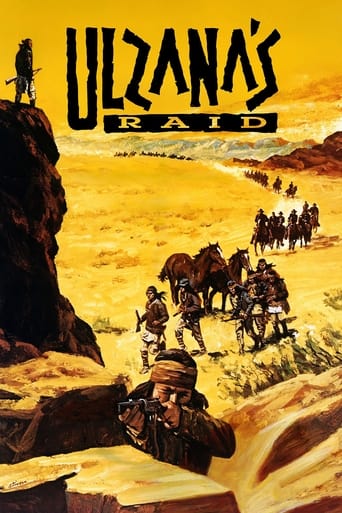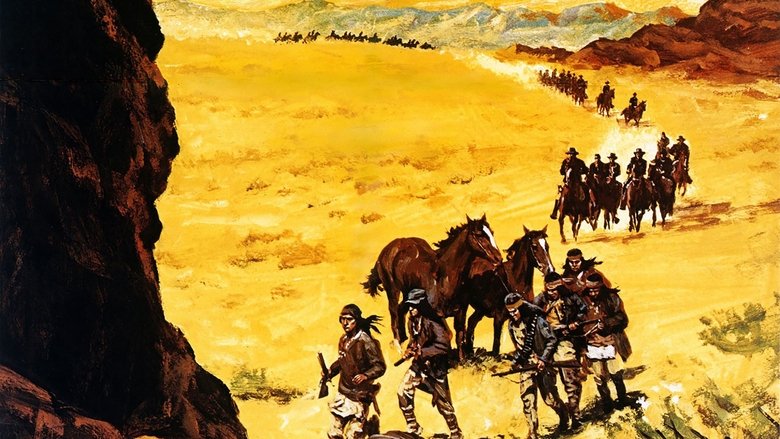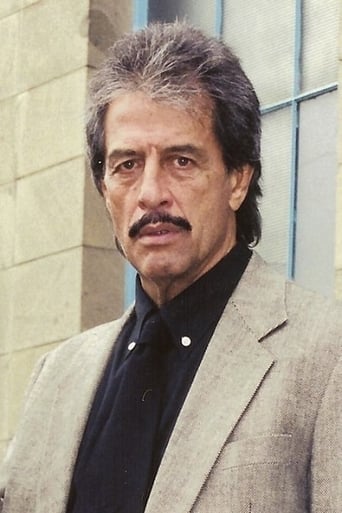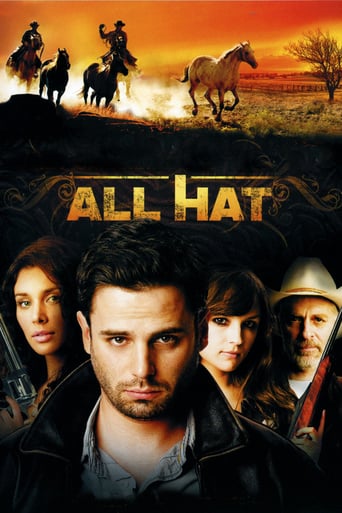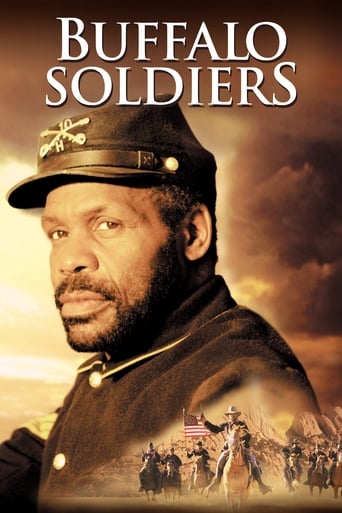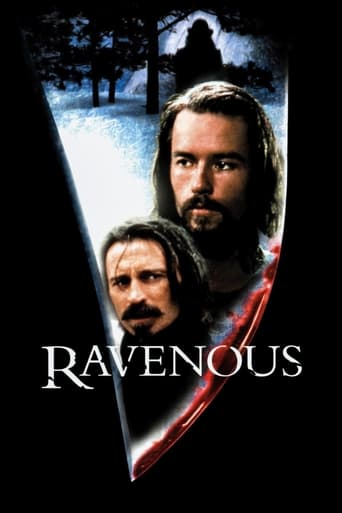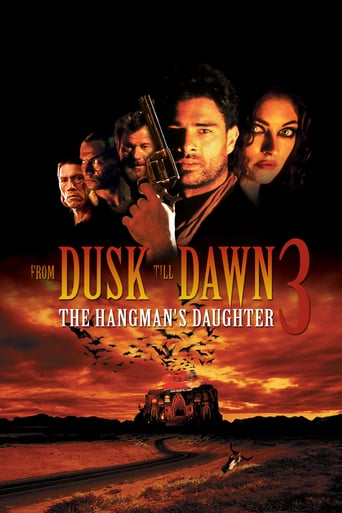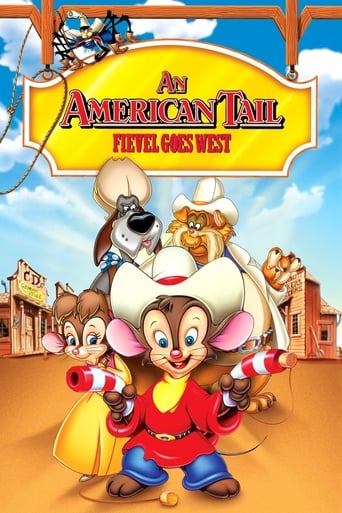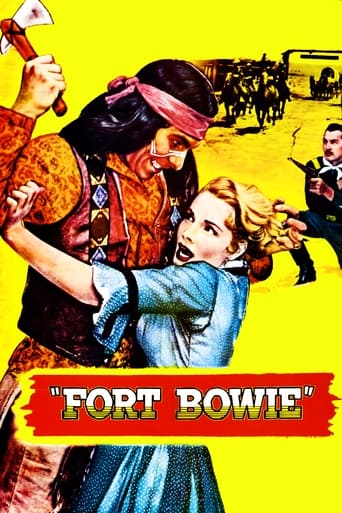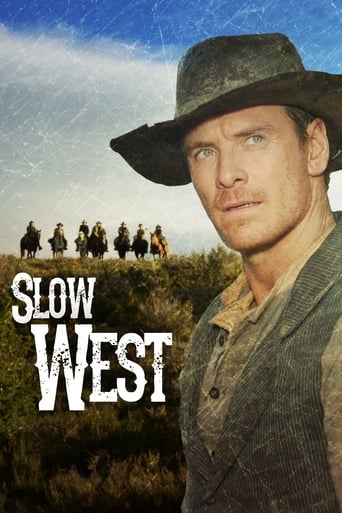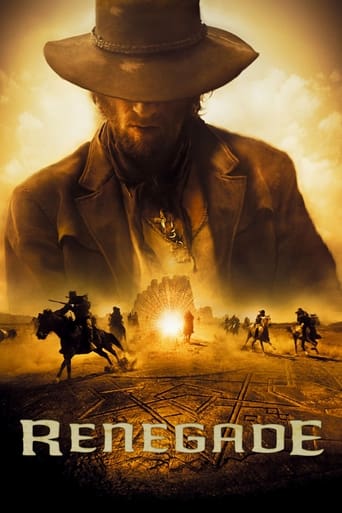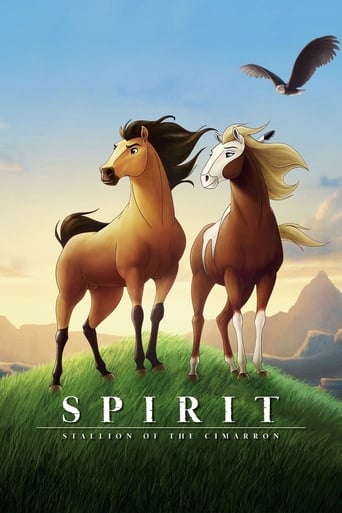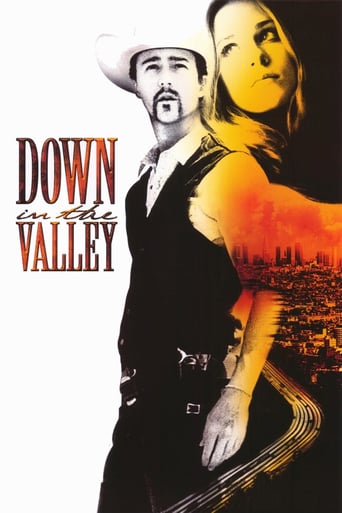Ulzana's Raid (1972)
A report reaches the US Army Cavalry that the Apache leader Ulzana has left his reservation with a band of followers. A compassionate young officer, Lieutenant DeBuin, is given a small company to find him and bring him back; accompanying the troop is McIntosh, an experienced scout, and Ke-Ni-Tay, an Apache guide. Ulzana massacres, rapes and loots across the countryside; and as DeBuin encounters the remains of his victims, he is compelled to learn from McIntosh and to confront his own naivity and hidden prejudices.
Watch Trailer
Cast


Similar titles
Reviews
Good movie, but best of all time? Hardly . . .
An Exercise In Nonsense
When a movie has you begging for it to end not even half way through it's pure crap. We've all seen this movie and this characters millions of times, nothing new in it. Don't waste your time.
This film is so real. It treats its characters with so much care and sensitivity.
Burt Lancaster did a trio of excellent westerns in the late 70s, including Lawman and Valdez is Coming. Of the three, Ulzana's Raid is the best; it ranks as one of the best and most realistic westerns ever made. It's not for the faint of heart, director Aldrich and screenwriter Alan Sharp make no bones about how brutal and terrifying the Indian wars of the Southwest were on both sides. Lancaster is superb as McIntosh the hard-bitten Indian scout, and is ably supported by old pro Richard Jaeckel and Bruce Davison as callow, inexperienced Lt. DeBuin. If you like westerns and you're a history buff, you'll enjoy this movie immensely. It's very well made and true to history.
Director Robert Aldrich was always a movie maker with conscience, though conscience didn't always prevail. The Dirty Dozen, for example, fails to rise above commercial action-adventure, while Whatever Happened to Baby Jane stands as a nasty exercise in Gothic grotesqurie. Nonetheless, Ulzana's Raid remains a lasting tribute to a gutsy, principled filmmaker more uncompromised than most within the mushy ranks of Hollywood liberalism. In a nutshell: both cavalry and Indian emerge from Ulzana's Raid as authentic human beings, acting on motives consistent with their beliefs and disparate cultures. In the final analysis, neither side is shown as occupying the moral highground. Instead both are shown as capable of sometimes cruel sometimes noble acts, utilizing both uncommon resourcefulness and distinct codes of honor. Sort of like real people, which for the mythologized world of the Western, represents real departure. If the cavalry wins, it's not because of numbers or superior men at arms. It's because they've been able to bribe an Indian turncoat into acting as scout. This is not ignoble subterfuge. Instead it reflects the Darwinist world of one culture replacing another and doing whatever it takes to people the land with their own kind. Moral hindsight would--I believe--favor the Indian because of prior claim on the land, and that's what's subversive about a movie like this. By equating the two sides, the Indian stands as the white man's equal, thereby undercutting notions of cultural superiority. That's why Bruce Davison's callow lieutenant keeps insisting on Christian beliefs. He's not so much afraid of losing the battle or his own life as he is of losing notions of inherent superiority. It's also why Lancaster's wordless nod to the Apache scout before expiring is so meaningful. Despite appearances, the film is not an exercise in moral relativism. Instead, it's a very moral movie, requiring us to look deeply within ourselves, before labeling others as evil or barbaric. It's also why the Burt Lancaster character is so affecting. He understands this simple truth in a profound way. The parallels with international politics in the new millennium are too obvious to be overlooked, and the lessons remain as valid now as in 1973. This is a thinking person's Western, one of the very best, and deserves rediscovery on at least at a cult level.
Ulzana's Raid is war games out in the deserts of the old American West that happens to have been stretched to the length of a hundred and three minutes, a film depicting the battle between two sides vying for a territory more than it is any sort of enveloped narrative or intense character study. Imagine a team based game of Monopoly with packed groups of people on either side contesting a vaster, more open board but with the competitor's life on the line instead of large amounts of fictitious money. While we're on the subject, imagine the barren, sandy states of the American frontier as one large chess board wherein varying soldiers and troops of varying ability and rank capable only of particular things that come naturally to them move around the game zone vying for victory. While the film is essentially a series of sequences dedicated to tracking and moving and trying to work one's opponent out, veteran director Robert Aldrich just happens to have made it as gripping as it is. The respective sides in this case are, somewhat originally, the cowboys and the Indians; members of a Union Army, of whom have employed an elderly tracker who's seen one too many examples of what the Indians are capable of, and the indigenous Apaches – a group led by a notoriously savage chief whose barbarism and hatred for the whites that have settled is equal only to his love for this once pure land. Shrouded in darkness, our introduction to these Apache people paints a worryingly bleak picture as to what folk will come up against, when these horrifically scarred and robotically inclined beings raid a ranch and make off with a far more human-a looking white man's horses. The antagonist in this case is the titular Ulzana (Martinez), the man leading these people; a brutal man, not a thief or a cutthroat out of nature but out of the application of colonisation to his land, a savage man but only through war.Cut to the bright, welcoming daylight of a baseball match being played between those in the Union Army within the confines of their outpost. Things are cheerier and more upbeat, especially now that we've moved away from those 'nasty' Apaches and their night-set shenanigans. A young lieutenant named Garnett DeBuin (Davison) does well to stand up to those rougher, meaner and more ego-centric as he calls the game, in spite of his young and angelic appearance. Before anything can get too out of hand, an American scout rides in from the wilderness having been called upon as an Apache expert and someone who's lived and dealt with them in past, in spite of his reluctance to agree to their nature and views. He is McIntosh, played with a gruff aplomb by Burt Lancaster; once a young and somewhat angelic actor himself who enjoyed his time standing up to those in his profession of a more hardened nature, particularly in early films such as "The Killers". Here to deal with the threat of Ulzana, McIntosh offers a stern warning to those eventually charged with chipping in with him that Ulzana is a vicious, merciless man. Indeed, "Half of everything he says is a lie, the other half just 'aint true" is the parting shot issued by the scout on Ulzana. The body of the film is this platoon of gunmen on horseback navigating the terrain in search of Ulzana and his men. The titular Indian knows he's being tracked by this group; the army don't know where he's heading and considering just how violent Ulzana can be in his recent attacks against white settlers, there is a sense of the whole thing being one giant race against time as settlers lives remain in danger. Internal clashes between McIntosh and DeBuin see two men disagree over whether some kind of truce can be formed between the whites and the natives, McIntosh's worn dress; elderly composition and rough talking tone is manufactured to be seen as the epitome of old, politically incorrect and 'wrong' headed thinking when stood beside DeBuin's younger, fresher and more broadly minded uniformed soldier. It is unfortunate, then, that the duality inherent in these two men is eventually sidestepped for an all-out war one could accuse of being episodic, but there is enough of a grip on the audience and is never one worn out by its nature in this regard.If I was surprised by how gripping the film was, given its approach, to depict a series of tracking; talking; stopping and planning, then I was even more surprised by often how tough-a film this is. Make no mistake, the scenes involving the brutality that Ulzana inflicts upon the people of the terrain are often startling and it is indeed a sorry state of affairs when we realise just how watered down mainstream cinema has become in an era of genre hybridisation and big-business that drives American genre films of the modern day. At least in the era of Ulzana's Raid, violence and solid depictions of the old west in general could make its way into a mainstream piece because the mainstream were predominantly adult. Synonymous with the death of the Western genre (because it's tough to 'vamp up' a Western with cartoonified narrative elements and numerous sub-genres) is the death of films made by adults FOR adults, replaced by frat/fan-boy driven financial opportunists who produce cinematic stinkers in a set genre for people of similar ilk. Perhaps Ulzana's Raid is a bit episodic; perhaps it isn't much more than an exploitation film and maybe it wasn't immune to criticisms of it being mainstream upon release, but it's a sure-sight better than what we get now.
It gets off to a talky start, as it takes too long to assemble the search party to hunt down the Indians. The main battle between the troupes and the Apaches is pretty exciting. Lancaster is fine as an aging scout and so is Luke as an Indian guide. Davison, however, is rather annoying as the callow young officer, a pompous and whiny "good Christian" charged with leading the raid. His repeated questions about why the Apaches are such savages becomes so tiresome that one roots for one of the Indians to do him in. No attempt is made to portray the Indians as anything but one-dimensional savages. The violence is brutal and gratuitously repulsive.

